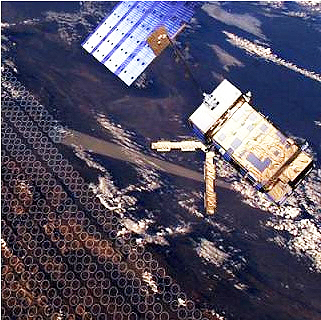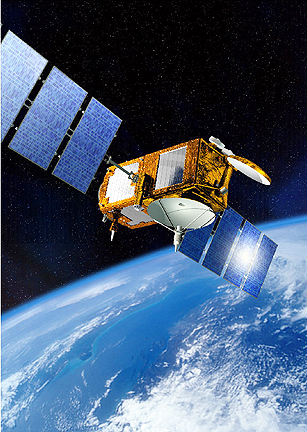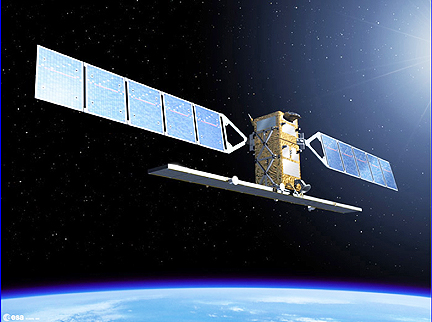Eumetsat... Mind Meld In Rome (Policy Meeting)
[SatNews] EUMETSAT, the European Organisation for the Exploitation of Meteorological Satellites, held its 70th Council meeting in Rome, Italy, on June 21-22, 2010. At the Council, the texts of the Meteosat Third Generation (MTG) Program Resolution and Program Proposal were approved by all Member States, with Germany and Portugal voting yes ad referendum.
This defines the scope and cost of the program. In addition, 14 Member States confirmed their support for the program itself, with the remaining Member States expected to follow before next Council. The EUMETSAT Director-General, Dr.
Lars Prahm, said, “MTG is now on track, securing the future of EUMETSAT’s geostationary meteorological observations and services until at least 2038.”

Eumetsat Polar System
The
Second Generation EUMETSAT Polar System starting in 2018 took further shape, with Council agreeing that a two satellite configuration be studied in
Phase A, with distributed payloads for the two satellites.

Jason-3 ocean altimetry satellite
Regarding the
Jason-3 ocean altimetry satellite, the Council approved the
Memorandum of Understanding (MoU) with the
US National Oceanic and Atmospheric Administration (
NOAA) and
National Aeronautics and Space Administration (
NASA). The Council also approved the
Cooperation Agreement between
EUMETSAT and the
Italian National Meteorological Service (
NMS) on the
Continuous Development and Operations Phase (
CDOP) of the
Satellite Application Facility on Support to Hydrology and Operational Water Management, led by the Italian NMS. The CDOP will cover the period between September 2010 and February 2012.

Sentinel-1 will be the first Earth observation satellite to be built for Europe’s Global Monitoring for Environment and Security (GMES) program.
The EUMETSAT Council also reaffirmed the role of EUMETSAT in the European Space Policy and in
GMES through the adoption of a dedicated resolution. In the GMES context, the
European Commission is responsible for the interaction with user communities to specify European space systems in support of European policies. EUMETSAT could be the European entity supporting the EU for the GMES activities related to operational oceanography, atmospheric composition monitoring and climate monitoring.
Topical Tags :
Regional Tags :





